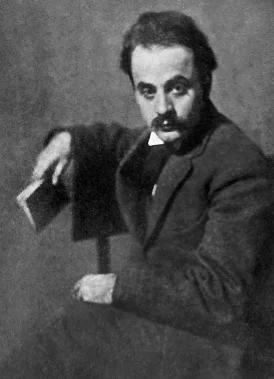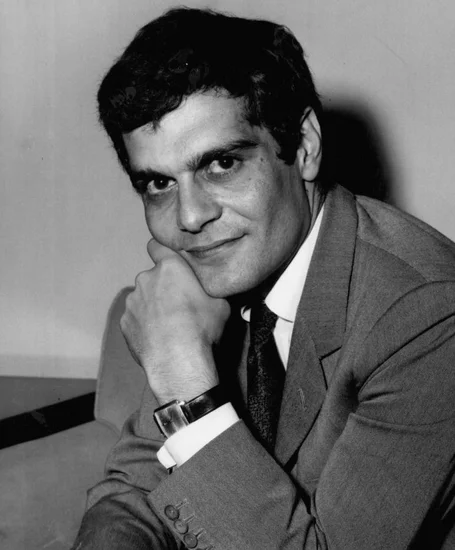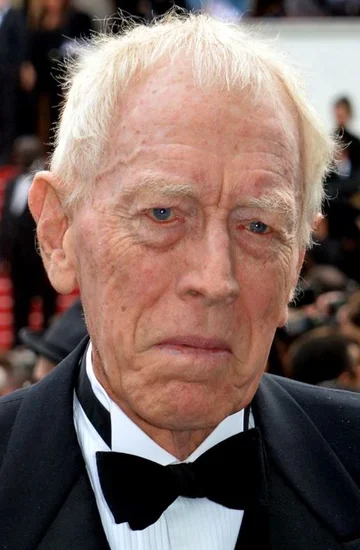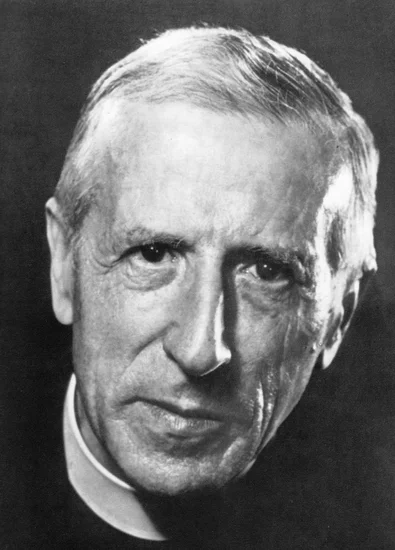April 10 stands as one of history’s most eventful days, witnessing the rise and fall of empires, groundbreaking discoveries, and moments that shaped our modern world across centuries of human achievement.

Politics and Government Events on April 10
1938 – German Parliamentary Election Approves Nazi Annexation of Austria
The Nazi regime conducted a carefully orchestrated election and referendum seeking approval for a single list of candidates. The vote also endorsed the recent annexation of Austria into the German Reich.
Citizens faced immense pressure to support the Nazi agenda in this manipulated democratic process. The overwhelming “yes” vote legitimized Hitler’s expansionist policies and marked another step toward European conflict.
1941 – Axis Powers Establish Independent State of Croatia
World War II’s expanding conflict saw the creation of a puppet state under Axis control. The newly formed Croatian government aligned itself with Nazi Germany and Fascist Italy.
This political reorganization of the Balkans facilitated Axis military operations in southeastern Europe. The arrangement would prove crucial for subsequent campaigns in the Mediterranean theater.
1981 – IRA Hunger Striker Bobby Sands Elected to Parliament
Imprisoned Republican activist Bobby Sands won election as MP for Fermanagh and South Tyrone while conducting a hunger strike. His victory sent shockwaves through British political establishments.
Sands died twenty-six days later, becoming a martyr for the Irish Republican cause. His election highlighted the deep political divisions surrounding Northern Ireland’s troubled relationship with Britain.
2009 – Fiji President Abrogates Constitution Creating Crisis
President Ratu Josefa Iloilo announced the complete suspension of Fiji’s constitution and assumed all governmental powers. The dramatic move plunged the Pacific nation into unprecedented constitutional chaos.
International observers condemned the action as a military-backed coup in democratic disguise. The crisis would isolate Fiji from regional partnerships and trigger widespread diplomatic sanctions.
2023 – Mass Shooting at Louisville Bank Kills Five

A gunman opened fire at the Old National Bank in Louisville, Kentucky, leaving five people dead and eight wounded. The workplace shooting shocked the community and reignited national debates about gun violence.
Emergency responders arrived quickly but could not prevent the tragic loss of life. The incident highlighted ongoing concerns about workplace security and mental health support systems.
Military and Naval History on April 10
1919 – Revolutionary Leader Emiliano Zapata Assassinated
Mexican government forces ambushed and killed the legendary revolutionary leader in Morelos. Zapata’s death marked a turning point in the Mexican Revolution’s violent struggle for social justice.
His assassination eliminated one of the most charismatic champions of agrarian reform and peasant rights. The betrayal by government agents would make Zapata a enduring symbol of resistance against oppression.
1944 – Jewish Prisoners Escape from Birkenau Death Camp

Rudolf Vrba and Alfréd Wetzler successfully escaped from the notorious Nazi extermination camp. Their daring breakout provided crucial intelligence about the Holocaust’s systematic murder operations.
The escapees’ detailed testimony reached Allied governments and Jewish organizations worldwide. Their courageous actions helped expose the full scope of Nazi genocide to international authorities.
1963 – USS Thresher Nuclear Submarine Disaster

The United States Navy lost 129 sailors when the nuclear submarine USS Thresher sank during deep-sea trials. The tragedy marked the worst submarine disaster in American naval history.
Extensive search and rescue operations failed to locate survivors in the Atlantic depths. The incident prompted comprehensive safety reforms throughout the nuclear submarine fleet.
1972 – American B-52 Bombers Resume North Vietnam Attacks
For the first time since November 1967, American strategic bombers reportedly began attacking North Vietnamese targets. The escalation marked a significant shift in Vietnam War military strategy.
The resumed bombing campaign reflected growing frustration with stalled peace negotiations. Military commanders hoped intensive air strikes would force North Vietnam toward meaningful diplomatic compromises.
2010 – Polish Presidential Plane Crashes Near Smolensk
A Polish Air Force Tu-154M carrying President Lech Kaczyński and senior officials crashed in Russia, killing all 96 aboard. The tragedy decimated Poland’s political and military leadership.
The delegation was traveling to commemorate Polish officers murdered by Soviet forces during World War II. The crash’s timing and location added profound symbolic weight to an already devastating national loss.
Science and Discovery Milestones on April 10
1972 – Ancient Military Treatises Discovered in Chinese Tombs
Construction workers in Shandong Province uncovered bamboo slips containing Sun Tzu’s Art of War and Sun Bin’s lost military treatise. The archaeological discovery revolutionized understanding of ancient Chinese strategic thinking.
Scholars gained access to previously unknown military texts from China’s classical period. The find provided invaluable insights into the philosophical foundations of warfare and statecraft.
2019 – Scientists Reveal First Image of Black Hole
The Event Horizon Telescope project announced the first ever photograph of a black hole located in the M87 galaxy. The groundbreaking image confirmed Einstein’s theoretical predictions about these cosmic phenomena.
Eight radio telescopes worldwide collaborated to capture the historic photograph. The achievement represented a triumph of international scientific cooperation and advanced astronomical technology.
1931 – Philosopher-Scientist Kahlil Gibran Dies

Lebanese-American poet, painter, and philosopher Kahlil Gibran passed away, leaving behind influential works bridging Eastern and Western thought. His writings explored spiritual and philosophical themes with profound literary artistry.
Gibran’s masterpiece “The Prophet” would become one of the most widely read books in publishing history. His death marked the loss of a unique voice in modern philosophical literature.
Cultural and Arts Events on April 10
1925 – The Great Gatsby First Published

F. Scott Fitzgerald’s masterpiece made its debut through Charles Scribner’s Sons in New York City. The novel would eventually be recognized as one of the greatest works of American literature.
Initial sales proved disappointing, but the book’s reputation grew steadily over subsequent decades. The story’s themes of wealth, love, and the American Dream resonated with readers across generations.
1970 – Paul McCartney Announces Beatles Departure

The legendary musician revealed his decision to leave The Beatles, citing personal and professional differences. His announcement effectively ended the most successful band in popular music history.
Fans worldwide mourned the dissolution of the group that had defined an entire generation. McCartney’s departure marked the end of an era in rock and roll music.
1954 – Auguste Lumière Dies

French film pioneer Auguste Lumière passed away, leaving behind revolutionary contributions to cinema technology. His innovations with his brother Louis helped establish the foundation of modern filmmaking.
The Lumière brothers’ early motion pictures had captivated audiences and launched an entirely new form of entertainment. Auguste’s death marked the passing of cinema’s pioneering generation.
1966 – Novelist Evelyn Waugh Dies

English author Evelyn Waugh passed away, concluding a distinguished literary career spanning several decades. His satirical novels had brilliantly captured British society’s pretensions and contradictions.
Waugh’s sharp wit and social commentary influenced countless writers and critics. His death represented the loss of one of the twentieth century’s most incisive literary voices.
Religious and Social Events on April 10
1939 – Alcoholics Anonymous Publishes First “Big Book”
The organization released its foundational text introducing the famous twelve-step program for addiction recovery. The publication marked a crucial milestone in treating alcoholism as a disease rather than moral failing.
The book’s practical approach to recovery would help millions of people worldwide overcome addiction. Its principles influenced countless other support groups and treatment programs.
1919 – Ukrainian Peasant Congress Convenes
The Third Regional Congress of Peasants, Workers and Insurgents met under Makhnovshchina leadership in Huliaipole. The gathering represented anarchist attempts to establish alternative governance during revolutionary upheaval.
Participants discussed collective farming, worker rights, and resistance to both Bolshevik and White Army forces. The congress embodied grassroots democratic ideals amid Ukraine’s chaotic political landscape.
1981 – Civil Rights Leader Howard Thurman Dies

Influential author, philosopher, and civil rights activist Howard Thurman passed away after decades of social justice advocacy. His theological writings had profoundly influenced the American civil rights movement.
Thurman’s work bridged religious faith and social activism, inspiring leaders like Martin Luther King Jr. His death marked the loss of a pioneering voice in liberation theology.
Business and Economic Events on April 10
1925 – Stalingrad Renamed to Honor Soviet Leader
The Russian city of Tsaritsyn received its new name Stalingrad in recognition of Joseph Stalin’s wartime leadership. The renaming reflected the Soviet Communist Party General Secretary’s growing political influence.
Stalin had guided the city’s defense during the Russian Civil War, establishing his military credentials. The symbolic gesture demonstrated how Soviet leaders used geography to reinforce their political legitimacy.
1991 – Italian Ferry Collision Kills 140
The MS Moby Prince collided with an oil tanker in dense fog off Livorno, Italy, resulting in 140 deaths. The maritime disaster highlighted safety concerns in Mediterranean shipping lanes.
Investigation revealed communication failures and inadequate safety protocols contributed to the tragedy. The incident prompted significant reforms in Italian maritime safety regulations.
2016 – Major Earthquake Strikes Afghanistan Region
A magnitude 6.6 earthquake struck 39 kilometers west-southwest of Ashkasham, affecting multiple countries including Afghanistan, India, Pakistan, and Tajikistan. The seismic event demonstrated the region’s geological instability.
Emergency response teams coordinated across international boundaries to assess damage and casualties. The earthquake underscored the need for improved regional disaster preparedness and cooperation.
Transportation and Infrastructure on April 10
1912 – RMS Titanic Begins Maiden Voyage
The world’s largest passenger ship departed Southampton, England, for its inaugural and ultimately tragic Atlantic crossing. The vessel represented the pinnacle of early twentieth-century maritime engineering and luxury.
Passengers and crew members anticipated a triumphant journey to New York City. The ship’s advanced safety features had earned it a reputation as virtually unsinkable.
1968 – TEV Wahine Ferry Disaster in Wellington

The New Zealand ferry encountered fierce storms and sank in Wellington harbour, killing fifty-three of 734 people aboard. The maritime disaster occurred during the strongest winds ever recorded in Wellington.
Rescue operations struggled against hurricane-force conditions to evacuate passengers and crew. The tragedy prompted comprehensive reviews of ferry safety procedures and weather monitoring systems.
1973 – Invicta Airlines Flight 435 Crashes in Switzerland

The chartered aircraft crashed in a snowstorm while approaching Basel, Switzerland, killing all 108 people aboard. The accident highlighted the dangers of flying in severe weather conditions.
Investigation revealed how adverse weather and navigation challenges contributed to the disaster. The crash led to improved aircraft instrumentation and pilot training for severe weather operations.
Sports and Recreation on April 10
1916 – Professional Golfers’ Association Founded

The Professional Golfers’ Association of America was established in New York City, creating the sport’s first major organizing body. The PGA would transform golf from an amateur pastime into a professional spectacle.
Founding members sought to standardize rules, organize tournaments, and elevate the profession’s status. The association’s creation marked golf’s transition into a major American sport.
1979 – Deadly Tornado Strikes Wichita Falls

A devastating tornado touched down in Wichita Falls, Texas, during the Red River Valley tornado outbreak, killing 42 people. The massive storm system demonstrated nature’s destructive power across the Great Plains.
The tornado’s path of destruction prompted improvements in weather forecasting and emergency warning systems. The tragedy highlighted the ongoing vulnerability of communities in tornado-prone regions.
1971 – Ping-Pong Diplomacy Opens US-China Relations
China hosted the United States table tennis team for a week-long visit in an unprecedented diplomatic gesture. The cultural exchange marked the beginning of improved relations between the two superpowers.
The sporting event provided a non-threatening platform for political dialogue during the Cold War. This “ping-pong diplomacy” would pave the way for President Nixon’s historic visit to China.
Notable Births on April 10
1932 – Omar Sharif Born

Egyptian actor Omar Sharif entered the world, destined to become one of cinema’s most recognizable international stars. His striking features and dramatic talent would captivate audiences worldwide.
Sharif’s performances in epic films like “Lawrence of Arabia” and “Doctor Zhivago” established him as a leading man. His career bridged Hollywood and Middle Eastern cinema with remarkable success.
1936 – Dolores Huerta Born

American labor activist Dolores Huerta was born, beginning a life dedicated to farmworker rights and social justice. Her organizational skills would prove instrumental in building the United Farm Workers movement.
Huerta’s tireless advocacy helped secure better working conditions and wages for agricultural laborers. Her leadership alongside César Chávez transformed American labor relations.
1929 – Max von Sydow Born

Swedish actor Max von Sydow was born, launching a career that would span international cinema for decades. His distinctive presence and dramatic range made him one of Europe’s most respected performers.
Von Sydow’s collaborations with director Ingmar Bergman established his reputation in art cinema. His later Hollywood roles introduced his talent to global audiences.
1958 – Yefim Bronfman Born

Uzbek-American pianist Yefim Bronfman was born, beginning a journey toward becoming one of classical music’s most celebrated performers. His technical mastery and interpretive insight would distinguish his career.
Bronfman’s performances with major orchestras worldwide showcased his exceptional musical gifts. His recordings became essential additions to the classical music repertoire.
1936 – John Madden Born

American football player, coach, and sportscaster John Madden was born, starting a life that would revolutionize sports broadcasting. His enthusiastic commentary style made football accessible to millions of fans.
Madden’s coaching success with the Oakland Raiders established his football credentials. His broadcasting career and video game franchise made him a household name across America.
1979 – Sophie Ellis-Bextor Born

English singer-songwriter Sophie Ellis-Bextor was born, beginning a career that would blend pop and dance music with distinctive style. Her sophisticated sound would define early 2000s British pop.
Ellis-Bextor’s hit singles combined catchy melodies with intelligent lyrics and striking visual presentations. Her music videos became cultural phenomena and influenced pop aesthetics.
Notable Deaths on April 10
1919 – Emiliano Zapata Dies

Mexican revolutionary general Emiliano Zapata was assassinated, ending his campaign for agrarian reform and social justice. His death marked a turning point in the Mexican Revolution’s complex political landscape.
Zapata’s leadership had inspired peasant armies across southern Mexico to fight for land redistribution. His martyrdom cemented his status as a symbol of resistance against oppression.
1931 – Kahlil Gibran Dies

Lebanese-American poet, painter, and philosopher Kahlil Gibran passed away, leaving behind influential works that bridged Eastern and Western thought. His writings explored spiritual themes with profound literary artistry.
Gibran’s masterpiece “The Prophet” would become one of the most widely read books in publishing history. His death marked the loss of a unique voice in modern philosophical literature.
1955 – Pierre Teilhard de Chardin Dies

French priest, theologian, and philosopher Pierre Teilhard de Chardin passed away, concluding a career that attempted to reconcile science and faith. His evolutionary theology challenged traditional religious thinking.
Teilhard’s writings on consciousness and cosmic evolution influenced both scientific and spiritual discussions. His death ended a lifetime of intellectual exploration at the intersection of religion and science.
1966 – Evelyn Waugh Dies

English novelist, journalist, and critic Evelyn Waugh passed away, concluding a distinguished literary career spanning several decades. His satirical novels had brilliantly captured British society’s pretensions and contradictions.
Waugh’s sharp wit and social commentary influenced countless writers and critics. His death represented the loss of one of the twentieth century’s most incisive literary voices.
2010 – Polish Leadership Dies in Plane Crash
The tragic crash near Smolensk claimed President Lech Kaczyński, First Lady Maria Kaczyńska, and dozens of other senior Polish officials. The disaster devastated Poland’s political and military leadership in a single catastrophic moment.
The delegation was traveling to commemorate Polish officers murdered by Soviet forces during World War II. The crash’s timing and location added profound symbolic weight to an already devastating national loss.
2024 – O.J. Simpson Dies

Former American football player, actor, and broadcaster O.J. Simpson passed away, concluding one of the most controversial lives in American sports and entertainment history. His athletic achievements were overshadowed by legal troubles and public scandals.
Simpson’s football career had established him as one of the sport’s greatest running backs. His later legal battles and media coverage made him a central figure in discussions about race, celebrity, and justice.
Holidays and Observances on April 10
Siblings Day International Observance

Communities worldwide celebrate the special bonds between brothers and sisters through various traditions and activities. The observance recognizes the importance of sibling relationships in family structures and personal development.
Social media platforms feature countless tributes and shared memories as people honor their siblings. The day provides opportunities for reconciliation and strengthening family connections across distances.
Day of the Builder in Azerbaijan
Azerbaijan honors construction workers and architects who shape the nation’s infrastructure and urban development. The observance recognizes the vital role of building professionals in national progress and modernization.
Government officials and industry leaders participate in ceremonies celebrating major construction achievements. The day highlights ongoing projects and future plans for Azerbaijan’s continued development.
Feast of the Third Day of Writing in Thelema
Followers of Thelema commemorate the third day of the writing of the Book of the Law, their central religious text. The observance marks a crucial moment in the religion’s foundational narrative and spiritual calendar.
Practitioners engage in readings, rituals, and meditation focused on the text’s spiritual teachings. The day represents the completion of revelatory experiences central to Thelemic belief systems.
